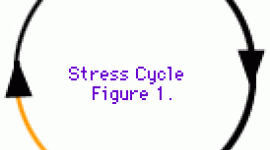Principles of Drug Addiction Treatment Preface
Three decades of scientific research and clinical practice have yielded a variety of effective approaches to drug addiction treatment.
 Drug addiction is a complex illness. It is characterized by compulsive, at times uncontrollable drug craving, seeking, and use that persist even in the face of extremely negative consequences. For many people, drug addiction becomes chronic, with relapses possible even after long periods of abstinence.
Drug addiction is a complex illness. It is characterized by compulsive, at times uncontrollable drug craving, seeking, and use that persist even in the face of extremely negative consequences. For many people, drug addiction becomes chronic, with relapses possible even after long periods of abstinence.
The path to drug addiction begins with the act of taking drugs. Over time, a person's ability to choose not to take drugs can be compromised. Drug seeking becomes compulsive, in large part as a result of the effects of prolonged drug use on brain functioning and, thus, on behavior.
The compulsion to use drugs can take over the individual's life. Addiction often involves not only compulsive drug taking but also a wide range of dysfunctional behaviors that can interfere with normal functioning in the family, the workplace, and the broader community. Addiction also can place people at increased risk for a wide variety of other illnesses. These illnesses can be brought on by behaviors, such as poor living and health habits, that often accompany life as a drug addict, or because of toxic effects of the drugs themselves.
Because drug addiction has so many dimensions and disrupts so many aspects of an individual's life, treatment for this illness is never simple. Drug treatment must help the individual stop using drugs and maintain a drug-free lifestyle, while achieving productive functioning in the family, at work, and in society. Effective drug abuse and addiction treatment programs typically incorporate many components, each directed to a particular aspect of the illness and its consequences.
Three decades of scientific research and clinical practice have yielded a variety of effective approaches to drug addiction treatment. Extensive data document that drug addiction treatment is as effective as are treatments for most other similarly chronic medical conditions. In spite of scientific evidence that establishes the effectiveness of drug abuse treatment, many people believe that treatment is ineffective. In part, this is because of unrealistic expectations. Many people equate addiction with simply using drugs and therefore expect that addiction should be cured quickly, and if it is not, treatment is a failure. In reality, because addiction is a chronic disorder, the ultimate goal of long-term abstinence often requires sustained and repeated treatment episodes.
Of course, not all drug abuse treatment is equally effective. Research also has revealed a set of overarching principles that characterize the most effective drug abuse and addiction treatments and their implementation.
To share the results of this extensive body of research and foster more widespread use of scientifically based treatment components, the National Institute on Drug Abuse held the National Conference on Drug Addiction Treatment: From Research to Practice in April 1998 and prepared this guide. The first section of the guide summarizes basic overarching principles that characterize effective treatment. The next section elaborates on these principles by providing answers to frequently raised questions, as supported by the available scientific literature. The next section describes the types of treatment and is followed by examples of scientifically based and tested treatment components.
Alan I. Leshner, Ph.D.
Director
National Institute on Drug Abuse
Source: National Institute of Drug Abuse, "Principles of Drug Addiction Treatment: A Research Based Guide."
next: Principles of Effective Drug Treatment
~ all articles on Principles of Drug Addiction Treatment
~ addictions library articles
~ all addictions articles
APA Reference
Staff, H.
(2008, December 29). Principles of Drug Addiction Treatment Preface, HealthyPlace. Retrieved
on 2026, March 3 from https://www.healthyplace.com/addictions/articles/principles-drug-addiction-treatment-preface


